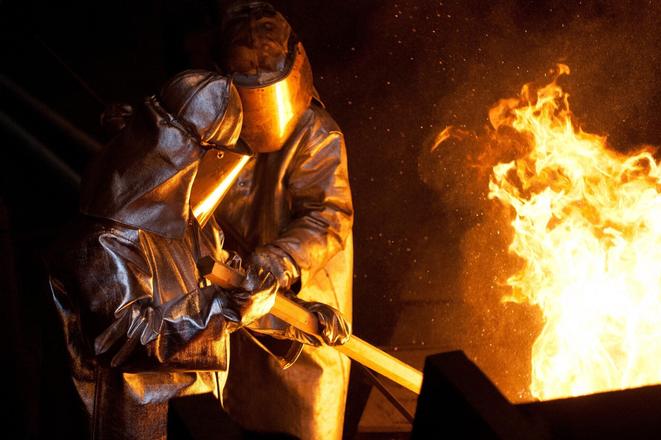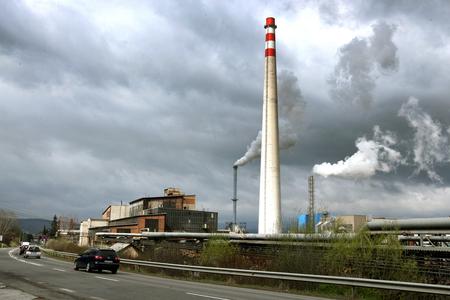The steelmaker U.S. Steel Košice, one of the biggest green gas emitters in Slovakia, welcomes the allocation of €300 million from the EU’s Recovery and Resilience Plan to decarbonise its steel production. But this amount will cover only a portion of expected costs estimated to exceed €1 billion.
“This is the first of several steps necessary for the thorough consideration of a potential investment into USSK,” said Ján Bača, USSK spokesperson as cited by the TASR newswire, when responding to the information that USSK had succeeded, as one of three companies, in applying for a grant from the Recovery Plan.
Any potential future investments into decarbonisation hinge on additional conditions, such as the grant support via the Modernisation Fund, the extension of the timetable to draw from the Recovery and Resilience Fund, the identification of investment partners, competitive long-term electricity prices, and approval by the Unites States Steel Corporation’s board of directors, noted Bača.
Replacing blast furnaces with electric arc furnaces
The Kosice-based steelmaker, to make its steel production green, plans to replace two of its three blast furnaces with electric arc furnaces. Electric furnaces would also significantly reduce its dependence on ore and coke imports from Russia and Ukraine, and lower costs on emission allowances. They will mainly smelt scrap from Slovakia and neighbouring countries.
Based on the plan submitted for the environmental impact assessment last year, the total cost of modernising the factory could reach €1.3 billion. Under it, USSK plans to build a new metallurgical plant, which will combine production, and casting and rolling of steel with new progressive technologies. It will consist of two electric arc furnaces, off-site steel processing facilities and one continuous casting and hot rolling line with a steel production capacity of up to 3.1 million tonnes per year.
Three companies qualified
The Environment Ministry announced on Monday that it would allocate a total of €317 million to three companies for green investments. The money will be divided among USSK, the cement producer Danucem Slovensko and bricks producer Wienerberger. Each of the latter will receive €8.4 million.
“Through these projects, Slovakia will be able to cut its emissions by more than 3 million tonnes of CO2 equivalent annually by 2026 at the very latest,” said Environment Minister Milan Chrenko. This is a comparable volume of greenhouse gas emissions that half a million Slovaks produce annually. These measures will also ensure a one-fifth reduction in all carbon dioxide emissions emitted here by companies participating in emission trading last year.



